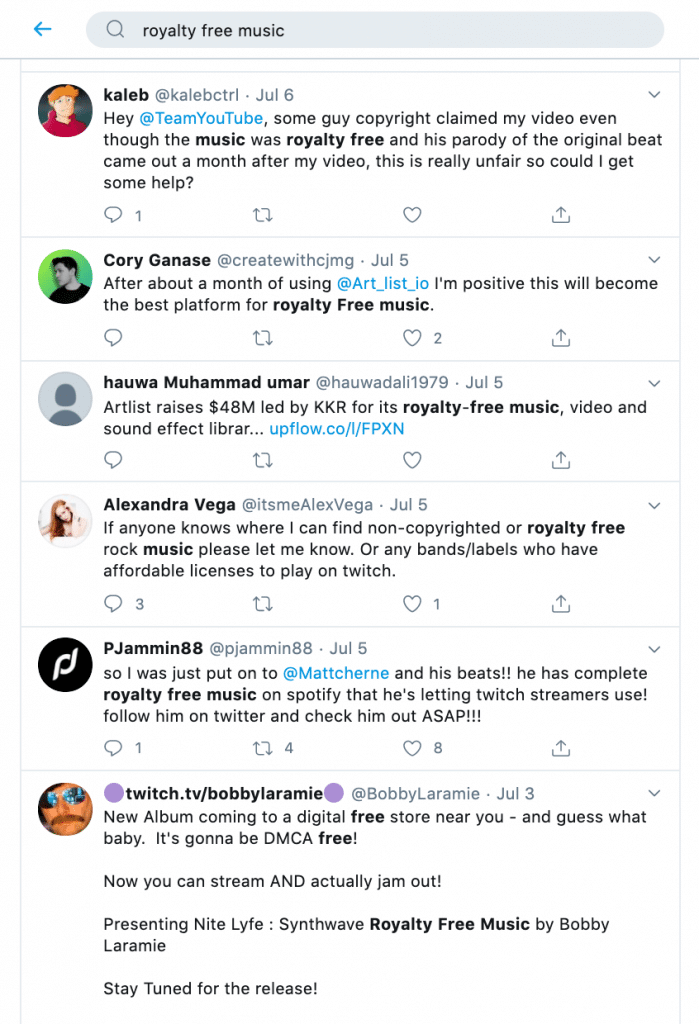How to Uncover Hidden Content Opportunities That Keyword Research Misses

Written By – Zach Watson
Content strategy has a keyword problem.
Just ask any writer where they get their ideas from. They’ll all respond with keyword research.
I’m not saying that’s a bad thing in itself. Content strategy must be data-driven.
But relying solely on data from Ahrefs, Moz, or some other keyword tool is like only listening to music on Billboard’s Top 100. Sure, there’s good stuff on that list, but you’re also missing out on tons of important artists — or in this case, content opportunities.
And those hidden opportunities are vital to a successful content strategy.
If you only do what other people have already done, how will you produce content that converts readers into customers?
In this post, I’ll explain why only relying on keyword research is a trap, and how you can find content opportunities that matter most to your audience.
The Gilded Cage of Keyword Research
If you’ve spent any time in content marketing, you know the basics of keyword research:
- use Ubersuggest to get a list of keywords
- compare the traffic and difficulty of each one
- write some articles about lowest difficulty / highest traffic topics.
Perhaps you prioritize these opportunities by their position in the searchers’ journey, i.e., top of the funnel, middle funnel, bottom funnel.
And that’s all well and good. We’re living in a golden age of data, so it makes sense for marketers to leverage keyword research as much as they can.
But as keyword research tools have gone mainstream, they’ve unleashed a plague of sameness. Search any keyword and you’ll likely be served a list of mostly-identical articles.
Case in point: best film editing software:

These articles all probably contain the same information, which means none of them are worthwhile.
Ryan Law, the director of marketing at Animalz, brilliantly articulates this point in his article about copycat content:
“Most SEO tools are extremely useful, but only when used with the creative and critical faculties of real human beings.
By their nature, SEO tools are backward looking. They’re great for showcasing the keyword and content type that have worked in the past, but they’re powerless to show you untested ways to convey information and match searcher intent.”
I would also add that these tools lack the ability to show you topics that are critically important to your audience but lack search volume.
So what’s the solution? Diversify your research. It turns out there are actually numerous methods to uncover content ideas that your audience really wants to know about.
5 Ways to Find Good Content Ideas
1. Listen to Podcasts About Your Industry
Podcasts play a lot of roles in the modern marketing mix, even if direct ROI isn’t one of them.
These audio shows are great ways to network with distinguished leaders inside your industry as well as avenues for turning yourself or your brand into a thought leader.
But podcasts also serve as phenomenal think tanks for content ideas. Because the discussions are typically wide-ranging as well as detailed, each episode can be a treasure trove of ideas that could be easily broken down and turned into content.
The key is to look for prominent topics that keep coming up throughout each episode. The more someone returns to a particular point, the more likely it is to be a winning content idea.
2. Q&A Sites
When I first started in my career, one of my jobs at my 9-5 was to cruise Quora and look for questions that pertained to my company’s product. If I found a relevant question, I would write a response and link back to an article on our blog that may or may not have been useful.
This strategy was an alright way to build backlinks, but I should have been using those questions as ideas for new articles. When people show up on sites like Reddit, Quora, and in a more technical industry Stack Overflow, they’re looking for answers they can’t find anywhere else.
These questions are certified gold when it comes to content strategy. What’s more, the discussion threads are also well worth your time, because people may elaborate on their question or debate back and forth about the best answer — all of which is very, very useful context.
3. Social Search
Keyword tools only look at search volume in Google while ignoring all the discussions happening on social media.
That’s good for you, because it’s another prime opportunity to do some digging and find out what your audience is talking about.
This one is actually really easy: just go to Twitter, type in a topic, and start reading all the tweets that pop-up. You’ll soon discover that the discussions that happen on social media often contain loads of information about how people feel about particular topics — angles that could be entire articles unto themselves.
If you want to add some analysis to it, I recommend Buzzsumo. This tool will show you popular topics on Twitter, Facebook, and YouTube based on shares, likes, and comments.
For example, Soundstripe supplies creators with royalty free music, so when I search Twitter for that term here’s what I see:

Even a cursory review reveals that Twitch and DMCA strikes are common themes, so they’re probably good topics to start covering on our blog.
4. Just Ask
Sometimes the best solution to a problem is the most direct.
If you have an email list of customers or leads — even a modest database will do — you should ask them about what’s on their mind. Create a survey that asks which type of things they’d like to learn more about, or what problems they’re struggling with at work.
This is a pretty simple strategy, but that doesn’t mean it’s not effective — quite the opposite in fact. Just asking people what content they want from you not only makes your brand more relatable but also increases the likelihood people will respond.
Look, I’m not saying keyword research is dying or any nonsense like that.
Keyword research is an integral part of how digital marketing works. By allowing marketers to drive traffic on a per-topic basis it allows, it helps us understand how to measure the ROI of content marketing.
And that’s a good thing. But keywords don’t give you a complete picture of what your audience is reading and watching.
To get a better view of what matters to your audience, try out the techniques I’ve listed above. I guarantee you’ll find at least a few hidden gems.
Zach is the content specialist at Soundstripe, a supplier of Youtube royalty free music for creators.